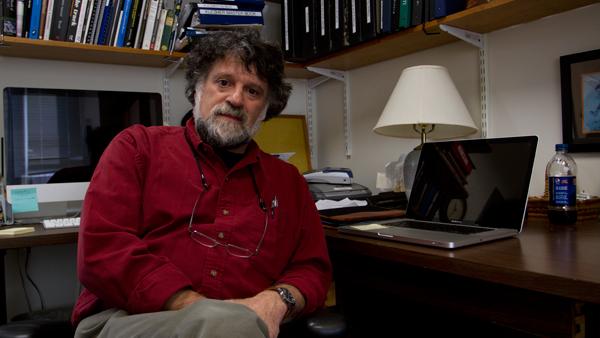Parking price increases, health benefit cost changes and centralization of campus services and departments were some of the 39 recommendations offered by the Huron Consulting Group as a result of Ithaca College’s Efficiency and Affordability Review.
President Tom Rochon announced in August that the college had hired the outside consulting group, Huron, to assess finances and review academic and administrative support. The results of the semester-long review were revealed to faculty and staff at the All-College Meeting on Jan. 17.
Rochon said in August that the college hired Huron with the objective of controlling tuition and room and board costs for students. He said the college cannot continue to operate the way it is without inflating student fees.“We have identified the goal of getting to the point where gross annual tuition increases are less than three percent per year, combined with a robust financial aid program that would make the net tuition increases even less than that,” Rochon said. “And in order to achieve that goal, we need to either find new outside revenues or reduced expenditures in the amount of $8.4 million by the year 2017-18.”
The total estimated savings and revenue from the Huron recommendations is $5.1 to $6.8 million in annual expenses, and $6.4 to $7.3 million in additional annual revenue.
The college announced the recommendations that stemmed from the review Jan. 17 and released them to the online community on Sakai for review. Anyone with an Ithaca College login can access the documents. All of the available documents on Sakai were released to The Ithacan by a member of the college who wishes to remain anonymous.
Huron’s 39 recommendations were organized into seven categories, including recommendations for greater centralization, improving efficiency of business processes, reducing net cost without reducing services, organizational alignment for effectiveness, employee benefits, student fees and new revenue sources.
Two of the seven key areas are directly related to faculty and students, and both addressed health care and parking.
Peter Rothbart, professor of music theory, history and composition and chair of the Faculty Council, said some faculty are concerned about the integrity of the academic programs.
“While it’s clear that the recommendations are not about academic programs, the support for those programs, obviously there will be some effect there, and I think the trick is to make what changes are necessary without affecting academic programs, and that I assume will be faculty’s highest priority,” Rothbart said.
On Tuesday, at the Faculty Council Meeting, faculty discussed how academic programs will be affected along with the recommendations to add a parking fee for faculty and staff and increasing the percentage employees pay for health care benefits. During two hours of open session, the faculty passed three motions: the first regarding reviewing academic program review, the second recommending to base health benefit and parking price increases on salary and family structure and the third recommending not to charge faculty and staff for parking.
Two recommendations regarding students include adding a flat rate of $10 per Health Center visit and moving from a sliding cost for parking permits, depending on when in the year it is purchased, to a flat rate for the year.
In the recommendation area that focused on cost consciousness, Huron found that overtime pay needs to be better monitored and reduced — especially in areas of Facilities and Public Safety. Also, the Rochester Center used by students in Health Sciences and Human Performance was determined to be too costly, and Huron therefore recommended consolidation of its operations in Ithaca.
Senior Rob Flaherty, president of the Student Government Association, said some aspects of Huron’s recommendations will affect students but will mostly affect faculty and staff of the college.
“There’s some concern from the physical therapy community about the cuts to the Rochester campus, students who utilize the health center with the co-pays and the flat fee, so these are things that we’re going to be reaching out to students to talk about how it will all affect them,” Flaherty said.
The recommendations will remain open on Sakai for review and comment for current faculty, staff and students until Feb. 11. In the interim, SGA will meet to discuss their recommendations Feb. 3. On Feb. 6, an open house will be held to collect in-person feedback from members of the college community.
Rochon said he is excited to see what comes from the three-week community comment period.
“On the one hand, I’m told by experts in this field that we’re doing something that has not been done on other campuses, on the other hand, I think the best way to reach good decisions is to include lots of people in the advisory process,” Rochon said.









